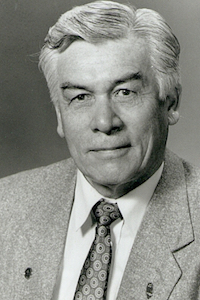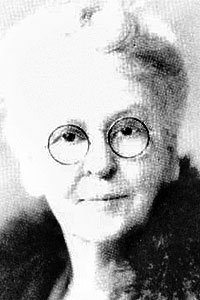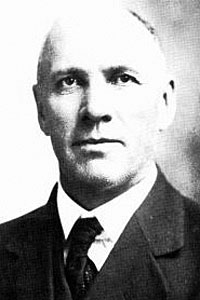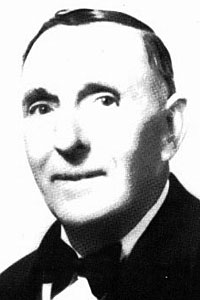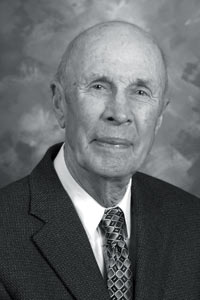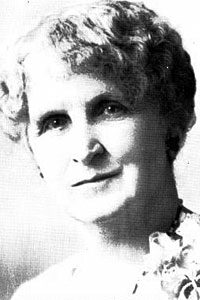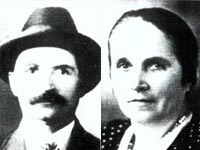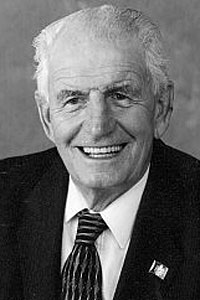James Clayton Gilson was born on February 7, 1926 in Deloraine, Manitoba. He and his six siblings grew up in a loving family in which education, the arts and service to others were stressed. In 1955 Clay married Jean Rudy and they raised four sons, Stuart, Garth, David and Brian. Clay served for two years in the armed forces and then attended the University of Manitoba. In 1950 he graduated with a B.Sc. in Agriculture. He earned his Master of Science in 1952, majoring in Agricultural Economics because it directly involved people. His mission was to understand farming economics so that he could improve the lives of farm people. In pursuing his goal he earned his Ph.D. from Iowa State...
AHOF Members archive
Wood, Janet
Janet Wood (nee Jaffray) was born in Bannockburn, Scotland and spent her early childhood in Ontario. She moved with the family to Kildonan, Manitoba and later to farm life at Elkhorn where she met and
Winkler, Valentine
Born near Neustadt, Grey County, Upper Canada, Valentine Winkler moved to southern Manitoba in 1879 following the death of his father. He worked in his brother’s lumberyard until opening his own grain and lumber operation at Morden in 1883. Winkler began farming in 1888 and was elected the first reeve of the Rural Municipality of Stanley, serving from 1890-92. In 1892, the village of Winkler was established, named for him. Here he owned and operated a grain elevator and lumber business. During that year, he was elected to the Manitoba Legislature and was a member until his death, serving five years as the minister of agriculture and immigration from 1915-20. He was always interested in the improvement of farming and...
Whitelock, William
William Whitelock, a native of Glasgow, Scotland, emigrated to Manitoba in 1903. Following a brief stay at Minnedosa, Whitelock moved to the Roskeen district near Kelwood. He farmed in this area for nearly 60 years and during that time received worldwide recognition for his cereal grain crops. In 1919, Whitelock grew his first registered Marquis wheat and by 1922 it was chosen as the best Marquis wheat in Western Canada. From that time forward he received provincial, national and international acclaim. In his early years as a seed grower, Whitelock received orders for seed from Czechoslovakia, Germany and Russia, as well as throughout Canada. In total, Whitelock won eight world championships for his wheat, oats and barley. He served as...
Whetter, Ralph Jacob
Ralph Jacob (Clint) Whetter was born June 20, 1919, in the R.M. of Winchester. He attended both public and high school in Dand. In 1938, Clint enrolled in Agriculture at the University of Manitoba. In 1942, following graduation, he enlisted and went overseas with the RCAF. In 1945, after flying 55 bombing missions, Clint returned home to Manitoba. Later that year he married Dorothy Keeler. Together they raised four children: Dale, Glen, Ellen and Bernie. The Whetter home, yard and farming operation reflected Clint’s progressive agricultural practices. He was particularly proud of, and known for, his excellent herd of purebred Herefords. Clint’s interest in researching and adopting new farming methods resulted in the Whetter farm always being on the forefront...
Watt, Mary Jane
In 1892, a young woman in her early 20s, Mary Jane (Jennie) Watt, came west from Woodstock, Ontario, with her husband, David Watt, to settle on a farm eight miles from Birtle. Those who write of Watt tell of her courage, her loyalty, her gracious personality and of her record of devoted public service which places her among Canada’s most distinguished pioneer citizens. Watt was most active in the Women’s Institute movement. Started in 1910 as “Home Economics Societies” these groups were designed to act as channels through which the Agricultural College might reach the women of the province with lectures on various phases of homemaking. Birtle was one of the first to organize in 1910 with Watt as secretary....
Wachna, Theodosy & Anna
Mr. and Mrs. Theodosy Wachna immigrated to Canada from Western Ukraine near the turn of the century. After settling on homesteads in the Stuartburn area, they met and married in the fall of 1897. Theodosy had learned English and was thus chosen by immigration officials to help 30 new immigrant families homestead there. This responsibility for the welfare of others became an outstanding feature of his life’s work. By 1898, with his assistance, a viable community of over 500 people lived in the vicinity. Mrs. Wachna was a remarkable asset to her family and friends. She had helped her father with the task of “homesteading” and after her marriage, she worked alongside her husband in order to make the farm...
Vielfaure, Albert
Albert Vielfaure, the eldest of nine children, was born in La Broquerie, Manitoba on April 6, 1923. He attended primary school locally and completed grade eleven at the village school. He married Solange Desrosiers in 1951 and they have two daughters and three sons. After leaving school Albert went to work on the family farm. With his brother Aime, they took over management of the farm after the death of their father and operated it until 1946. The brothers bought La Broquerie Transfer in 1946. They hauled milk in cans to Winnipeg, brought back freight for merchants and area farmers, and hauled livestock, hay and wood. After selling the trucking business, Albert returned to farming with his brother raising dairy...


